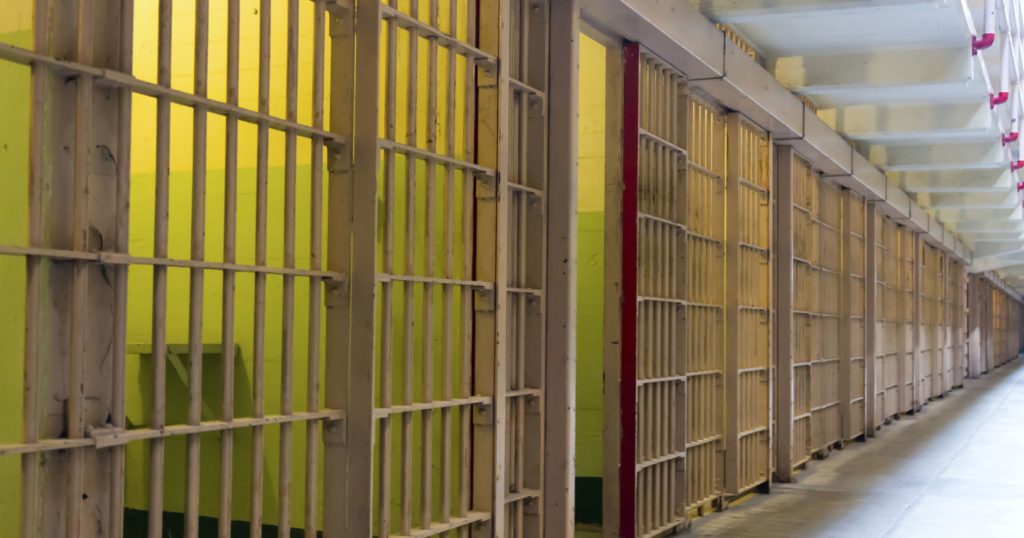Federal appeals court blocks Alabama anti-abortion law

The 11th Circuit U.S. Court of Appeals in Atlanta blocked Alabama anti-abortion legislation on Wednesday, that would have outlawed a commonly used second-trimester dismemberment abortion procedure. The legislation, SB363: the Unborn Child Protection from Dismemberment Abortion Act, originally passed in 2016 and called for a ban on dilation and evacuation abortions; during which the fetus is removed in pieces with forceps. This type of procedure accounts for approximately 95 percent of all abortions in the second trimester. The legislation also allowed an exception in the event of a “serious health risk to the mother.” Executive director of the American Civil Liberties Union of Alabama, Randall Marshall told the Associated Press that the ruling means “Alabama politicians can’t put an “ideological agenda” over a woman’s health and decision-making.” “I am disappointed that the 11th Circuit sided with the lower court in this case, but it is encouraging that the court recognized the State’s important and legitimate interests in ending barbaric abortion procedures—in this case, procedures that literally tear apart babies living inside their mothers’ wombs,” Attorney General Steve Marshall said in a statement. “Our legal team is carefully considering whether we will petition the Supreme Court for review of this case. We expect to reach a decision soon.” In June of 2016 the ACLU filed a lawsuit against the restrictions, saying they would dramatically cut abortion access and close the state’s two busiest clinics — the West Alabama Women’s Clinic in Tuscaloosa and the Alabama Women’s Center in Huntsville. According to the Alabama Department of Public Health, the clinics in Huntsville and Tuscaloosa performed 72 percent of the 8,080 abortions in Alabama in 2014. Scheduled to take effect on Aug. 1 of 2016, U.S. District Judge Myron Thompson temporarily blocked the enforcement of the new law in July of that year.
Warden testifies in trial over prisons’ mental health care

In late February, Alabama prison inmate Billy Lee Thornton stepped onto his cell bed, put a shoe string around his neck and hung himself from the light fixture, according to an incident report written by a correctional officer who witnessed the incident. The correctional officer, who had been at the door of Thornton’s segregated cell talking with him about medication, immediately called for help. As two officers rushed into the cell at Holman Correctional Facility and reached for Thornton, the string broke and Thornton fell, hitting his head. Thornton was rushed to the hospital. Four days later he was taken off life support. U.S. District Judge Myron Thompson, who last year ruled that Alabama provides “horrendously inadequate” mental health care to state inmates, ordered a Monday hearing on the circumstances of Thornton’s death and the death of another inmate. Holman Warden Cynthia Stewart testified Monday in federal court that Thornton was placed on mental health observation but not a suicide watch after a previous attempt to kill himself. Thornton was on the prison’s mental health caseload and had already attempted to hang himself on Dec. 27, 2017. A mental health evaluation presented to the court described him as hearing voices that told him to kill himself. He was placed under mental health observation, not a suicide watch, and stayed in a crisis cell under more intense supervision until Jan. 4. The plaintiff’s attorney Maria Morris said there is no documentation to show that Thornton received a mental health check 30 days after his release from the crisis cell. The 30-day check is required under a January 2017 court order that outlines a plan to protect possibly suicidal prisoners. After receiving another mental health evaluation where he was again described as having suicidal thoughts, Thornton was placed in a crisis cell on Feb. 22. He was released one day later. Morris said no documents show he received another mental health check before his death. Stewart said she didn’t know at the time about Thornton’s first suicide attempt. Bob Horton, a spokesman for the Alabama Department of Corrections, wrote in an email that the department is continuing to “investigate and evaluate the circumstances surrounding the death of the inmate at the William C. Holman Correctional Facility.” “This evaluation will include a review of actions of our contracted mental health staff and our correctional staff and whether those actions complied with departmental policy as well as any outstanding directives from the federal court,” Horton wrote. The department said the incident was currently classified as an attempted suicide. “I think today showed the Department of Corrections continues to leave prisoners who have severe mental health needs and have shown signs of dramatic decompensation in segregation at risk of harms to themselves without proper monitoring or treatment,” Morris said. Thornton was 31 when he died. His sister Taneisha Head, 29, was present at Monday’s hearing. “We’re just here for the truth,” she said. She said he never had a history of mental illness. “I knew my brother. He was coming home,” she told The Associated Press. “I told him we can’t wait till he comes home, and we can ride around in my new car and listen to blues.” Republished with the permission of the Associated Press.
House approves $85 million for prison improvements

Alabama lawmakers have approved an $85 million increase for the state’s prison system as they try to comply with a federal court order to improve mental health care for inmates. The House of Representatives on Tuesday approved $30 million for the Department of Corrections before September and a $55 million boost in next year’s general fund budget. U.S. District Judge Myron Thompson ruled last year that mental health care in Alabama’s prisons was “horrendously inadequate” and ordered the state to improve conditions. The budget also includes an additional $1 million for the Department of Youth Services to create alternative treatment programs for troubled youth. In addition, it adds $14 million for state employees’ pay raises and a one-time bonus for retirees. Republished with the permission of the Associated Press.
Alabama agrees to changes for inmates with disabilities

A federal judge on Friday gave final approval to a lawsuit settlement regarding how inmates with disabilities are housed in Alabama prisons. U.S. District Judge Myron Thompson signed the agreement reached between inmates and the Alabama Department of Corrections. The state prison system agreed to survey prison facilities and make changes to settle claims brought by inmates under the Americans with Disabilities Act and the Rehabilitation Act. The department will have 32 months to make any architectural changes required to make sure inmates with disabilities are appropriately housed and can access prison programs and facilities. The state also agreed to screen inmates for physical, mental or intellectual disabilities and to hire and train ADA coordinators. Disabled inmates said in the 2014 federal lawsuit that they were kept in facilities that couldn’t safely accommodate them, were denied access to prison education, work release and other programs because of their disabilities and were sometimes inappropriately housed with higher security inmates solely because of their disabilities. During a fire, a prisoner in a wheelchair had to maneuver deeper into the prison to access a ramp to the outside, according to the lawsuit. Thompson had given preliminary approval to the settlement in June. “The Alabama Department of Corrections is committed to meeting its obligations as set out in the settlement agreement,” Commissioner Jeff Dunn said in a statement. Thompson praised both the inmates who brought the lawsuit and the state prison system for agreeing to make changes. “This settlement reflects the Alabama Department of Corrections’ commitment to making manifest the rights of disabled prisoners in its custody; it represents the shouldering of significant responsibility, and presents an equally significant opportunity, by delineating a years-long process of ensuring compliance with the dictates of federal disability law,” Thompson wrote. Thompson wrote that the federal laws were meant to protect people with disabilities from being shunted and ignored. “Prisoners, looked down upon by society and hidden from public view, are likewise at risk of such treatment. Absent the protections created and processes mandated by the ADA and accompanying regulations, and without effective oversight, prisoners with disabilities are doubly damned,” Thompson wrote. The issue of housing for disabled inmates is part of a broader lawsuit filed by inmates over prison medical care. A group of inmates filed a civil lawsuit in 2014 that accused the state of failing to provide basic medical and mental health care. Those claims have not yet gone to trial. Republished with permission of The Associated Press.
Federal judge blocks Alabama’s new anti-abortion laws

A federal judge has temporarily blocked enforcement of two new Alabama abortion laws banning abortion clinics near schools and outlawing a commonly used second-trimester dismemberment abortion procedure. U.S. District Judge Myron Thompson ruled Wednesday that enforcement of the two new abortion laws in Alabama will be on hold until after a hearing in October. The laws, passed by the Alabama Legislature this spring and signed by Gov. Robert Bentley, were scheduled to take effect on Aug. 1. The American Civil Liberties Union in June filed a lawsuit against the restrictions, saying they would dramatically cut abortion access and close the state’s two busiest clinics — the West Alabama Women’s Clinic in Tuscaloosa and the Alabama Women’s Center in Huntsville. According to the Alabama Department of Public Health, the clinics in Huntsville and Tuscaloosa performed 72 percent of the 8,080 abortions in Alabama in 2014. Judge Thompson granted a temporary restraining order on enforcement of the laws — agreed to by both parties — to allow the state time to respond and to allow the court to consider the case. Thompson has scheduled an Oct. 4 hearing on a request from abortion providers to permanently block both laws.
Federal judge rules Alabama abortion restriction unconstitutional

A federal judge struck down parts of a controversial Alabama law Friday that requires abortion clinics to have admitting privileges at a local hospital. U.S. District Judge Myron Thompson had blocked the state from enforcing the law, but went on to rule it unconstitutional last week. Thompson ruled that the provision puts an undue burden on women and would cause many abortion clinics to close: Four of Alabama’s five clinics would likely have been forced to close had the provision been upheld. “The impact of the law on the right of Alabama women to choose to have an abortion will simply be enormous,” Thompson wrote. “The staff privileges requirement would make it impossible for a woman to obtain an abortion in much of the State. It is certain that thousands of women per year – approximately 40 percent of those seeking abortions in the State would be unduly burdened.” The provision in question came from the 2014 Women’s Health and Safety Act, which put in place a litany of requirements for abortion clinics, including requirements that clinics be classified as an “ambulatory service” and adhere to all of the restrictions therein. “We applaud the court for protecting women’s access to safe, legal abortion in Alabama,” Planned Parenthood President Cecile Richards said in a news release. “As a health care provider, we’ve seen the grim consequences for women when politicians put safe abortion out of reach.” The U.S. Supreme Court is considering the constitutionality of a similar Texas law. In its statement, Planned Parenthood noted that a study published in the American Journal of Public Health shows “the harm to Texas women facing tremendous hurdles to access safe, legal abortion, including traveling hundreds of miles, multi-day trips, and increased cost – if they can access an abortion at all.” Neither National Right to Life or the Alabama Pro-Life Coalition responded to requests for comment on the recent ruling.


